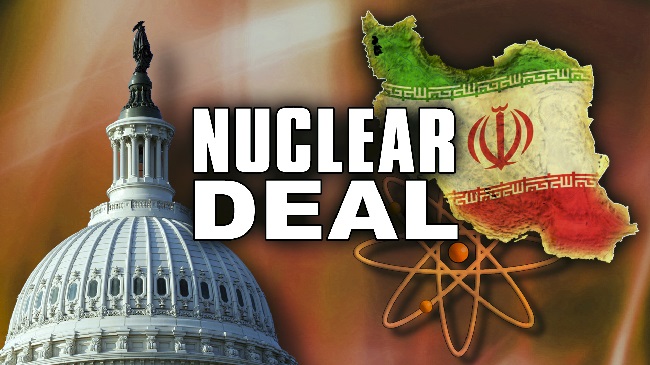By Martin Schultz
The suspense over the immediate fate of President Obama’s nuclear agreement with Iran is over; last week, Republicans in Congress tried to block the deal from moving forward, and failed. But the bitter, polarized debate over the deal will continue; the complexity of the agreement and the need to make sure Iran complies with its provisions mean it will remain a live issue for the foreseeable future.
Some Republicans have gleefully dubbed the Iran deal the “Obamacare of foreign policy” an unpopular measure that will allow them to blame Democrats for anything that goes wrong in the Middle East from now on.
The analogy applies to more than just the short-term politics of the deal. Like Obamacare, the nuclear agreement will take years to implement, and it will be years before its results can be fully judged. As with Obamacare, even a Republican president may hesitate before tearing up the agreement once it’s working, even if imperfectly. (Some GOP candidates, including Donald Trump and Jeb Bush, have suggested that they’d keep the deal but try to negotiate new terms.) Finally, as with Obamacare, Republicans plan to show their disapproval any way they can. They have already promised more votes this week to try to derail the agreement, even though they know their efforts are doomed.

But Republicans won’t be content with symbolic opposition; they’re also proposing legislation that could undermine the deal before it goes fully into effect. Sen. Bob Corker (R-Tenn.), chairman of the Senate Foreign Relations Committee, has said he will start by pushing for a 10-year renewal of the 1996 Iran Sanctions Act, the legislative umbrella for many U.S. economic sanctions against Iran.
That will put Democrats in a ticklish spot. Even the Obama administration agrees that the sanctions law should be renewed just not yet. (The law doesn’t expire until the end of next year.) Officials worry that an early vote to extend the law would allow hard-liners in Tehran to charge that the United States doesn’t intend to end sanctions even if Iran complies with its end of the bargain.
Worse, several other GOP senators, including presidential candidate Marco Rubio, have said they will propose new sanctions to punish Iran for its non-nuclear meddling in the Middle East. The problem is that non-nuclear sanctions are already in place, and Iran’s government has said it would consider new sanctions an underhanded way of restoring measures the nuclear deal is supposed to lift. It’s hard to avoid seeing most of these proposals as gambits designed to provoke Iran to pull out. If Corker or Rubio succeed, “the Iranians will surely react with outrage,” Suzanne Maloney, an Iran expert at the nonpartisan Brookings Institution, predicted. “The real uncertainty is exactly how far Tehran will push.”
Iranian officials, she said, might respond by declaring that they are free to pick and choose which parts of the deal to observe, leading to a death spiral of noncompliance on both sides.
Obama has said that he too intends to be tough on Iran just not in a way that would endanger the agreement. “My administration will take whatever means are necessary” to prevent Iran from acquiring a nuclear weapon, “including military means,” he pledged in a letter to members of Congress last month. “We will maintain powerful sanctions targeting Iran’s support for groups such as Hezbollah … and its human rights abuses at home.”
But the president’s long-term goal, aides say, is making it possible for Iran to move in a more moderate direction and, eventually, to make U.S. sanctions unnecessary. The vital question, they say, is what kind of Iran the U.S. will face in 15 years, when many of the deal’s main provisions expire: an Iran that concludes that renouncing nuclear weapons was a good decision, or one that believes the United States is determined to punish it with sanctions no matter what it does. So the agreement’s survival in Congress is only the beginning of a long process. It won’t be easy for this president and his successor to make the deal work. Critics can’t be expected to stop criticizing a deal they abhor. Still, they ought to give it a chance to succeed instead of undermining it even before it has gone into effect.
“Courtesy Los Angeles Times”.










